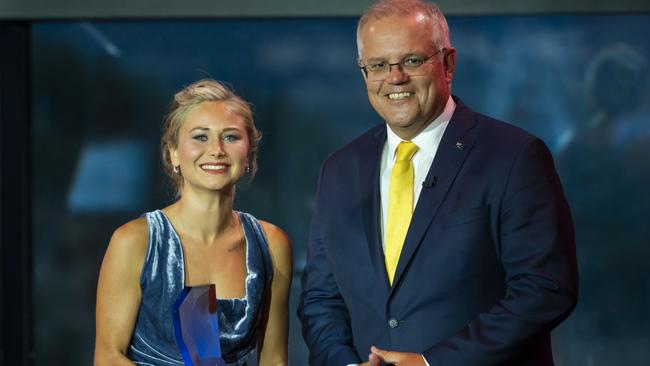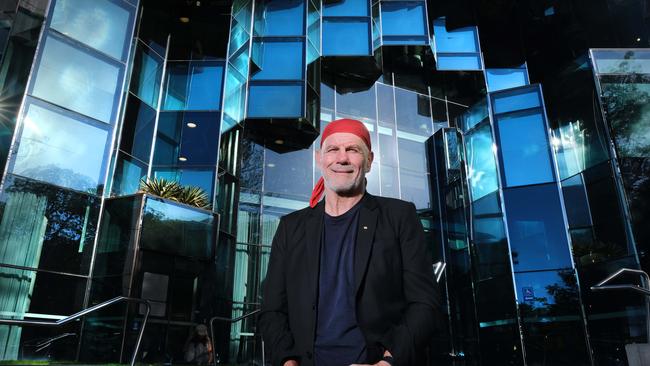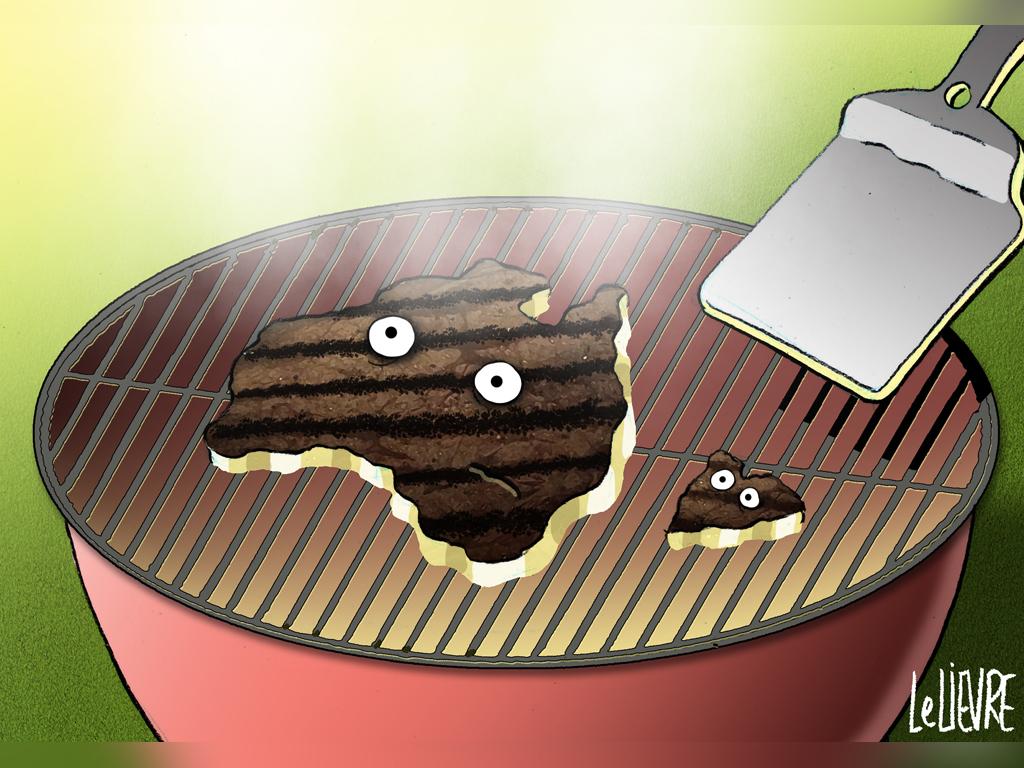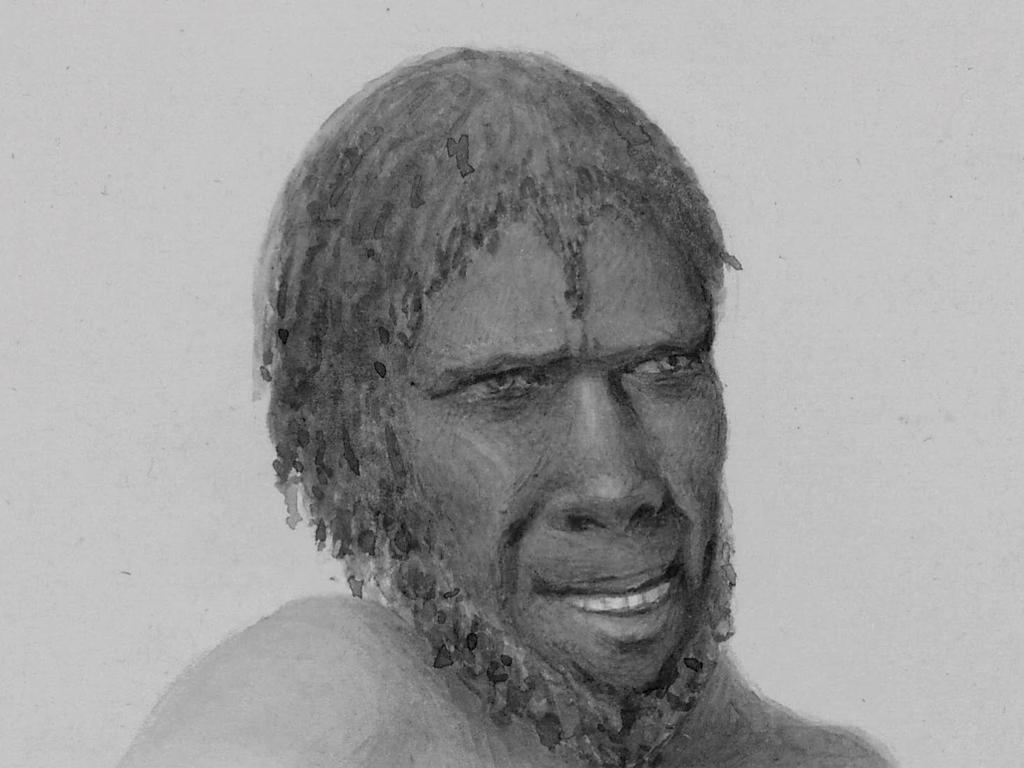If unity is a bridge too far, civility must chart the way
If we are to settle the big questions of a republic and a voice, we need to find a better way than this. And our next Australian of the Year should lead by example.

If we are to settle the big questions of a republic and a voice, we need to find a better way than we have so far. We could try replacing the polarising ideology and its close cousin, the politics of division, with cool-headed civility.
American sociologist Edward Shils has described ideology as the enemy of civility because it treats people with different views as immoral. It is, he says, “a set of ostensibly systemised beliefs, referring to all aspects of life, and asserted with dogmatic fervour and moral rigorism”.
Civility means not treating every issue as a winner-takes-all contest of wills. We might become more civil to others, and other ideas, and get closer to working out solutions if we fence off some parts of ourselves from partisan politics and the unthinking echo chambers of social media. That way, we might think and act with greater self-restraint, instead of hitting the usual default button of angry responses.
Instilling more civility won’t be easy, given the track record even on important challenges. But maybe our next Australian of the Year could help lead by example.
Grace Tame’s time as Australian of the Year started well. The young woman spoke about abuse from experience. She understood what it is to be a survivor of abuse. The need to be heard. To be taken seriously. Tame was able to add weight to Nina Funnell’s tremendous #LetUsSpeak campaign to get rid of those laws that stop victims of abuse from speaking out. But it was Funnell who understood how to reach a wide cross section of the country.
As she explained to Jess Hill in the November Quarterly Essay, the #LetUsSpeak campaign captured the core belief that people should be able to speak freely. Together with news.com.au, Funnell was successful in reforming laws that gag us, in this case laws that silenced the voices of abuse survivors.
Not long after becoming Australian of the Year, Tame decided to take a different route. She became political, choosing sides, cosying up to Labor and regularly ripping into the Morrison government. To be sure, there have been plenty of reasons to critique the politics and policies of the Prime Minister. But Tame did it in a fashion that made her sound partisan, like a Labor politician or a Green. Her attacks had a ring of ideology to them.
Over the past year, Tame has failed to emulate Funnell who was smart enough to deliver a unifying Pow! that rises above yawningly boring party politics. In many ways, Funnell would have been a more effective Australian of the Year than Tame.
Unity is a tricky word. Tricky, as in sneaky. It can be a disingenuous and emotive way of telling people it’s my way or the highway. A year ago this week, when Joe Biden delivered his inaugural presidential address, he called for greater unity. In parts, he mashed that message when he told the country to get on board with his political program. Try telling that to a country as politically divided as America, and see how far you get. A year on, Biden has not got very far.

And why would he? As Aaron Rhodes, president of the Forum for Religious Freedom in Europe, wrote after Biden’s speech, America has never been unified ideologically: “Political unity is what you find in fascist and other totalitarian, one-party states that oppose liberal individualism.”
But, as Rhodes notes, in other parts of that speech Biden finessed a better message – imploring unity of purpose, rather than politics. Biden asked the country to unify around “opportunity, security, liberty, dignity, respect, honour, and yes, truth.” He spoke about “fighting the foes we face: anger, resentment, hatred, extremism, lawlessness, violence, disease, joblessness and hopelessness”.
The harder part is working out how a polarised country can best resolve these and other common challenges without succumbing to the deadening grind of uncompromising politics and ideology.
The Australian Republic Movement’s latest effort is the perfect model for ticking off the people who need convincing that our Constitution needs a 21st century clean-out.
Its model involves Australian voters choosing a president from up to 11 candidates, who are in turn chosen by state and federal parliaments. It is a violent change to our system of government, adding a new layer of politics on top of the existing layer that will interfere with, and likely undermine, the existing layer. It is premised on the emotional pull of parochialism – your state can choose a candidate of your liking.
We won’t end up with Shane Warne, they promise. Frankly, I’d rather a bronzed, botoxed and boofy sportsman provided they butt out of daily politics. It’s hard enough finding one of those. Imagine the line-up of sad-sack former politicians who can’t get politics out of their system. How long before we hear this: “G’Day, I’m Kevin, I’m from Queensland, and I’m still here to help.” Kevin’s political doppelganger in NSW, Malcolm Turnbull, might also want a presidential stint to redeem his fraught time as prime minister.
To prove how ideological the ARM has become, ask yourself this: when was the last time you heard any normal person ask for another level of government to interfere in their lives? Yet this is what Peter FitzSimons and Co have concocted: a polarising model where we would end up with more, and probably worse, government. Their new backdoor direct election model is so tone-deaf that it points to how cliquey these high-profile and vocal republicans have become.
Republicans such as FitzSimons seem to have spent so much time with people who agree with them that they are high as a kite from inhaling their own imagined brilliance.
These geniuses have overlooked the starting premise for many Australians: you don’t have to be a monarchist, or even like the royals very much, to appreciate that our current system has worked, and is working, admirably well. It has provided a stable, effective democracy.

If FitzSimons and his team have a genuine desire for sensible constitutional change, they should start with this guiding principle: if unity is a bridge too far, settle on greater civility. Ditch the condescension of assuming you speak for a moral country. Instead, listen to people outside your comfy, cliquey little world before devising the next model.
They may discover a way of uniting the country around the simple idea that most people want less politics in their lives. In which case it’s time to drop the obsession with a direct election, especially their sneaky back door direct election model. Australians deserve more respect than that.
The same applies when devising an Indigenous voice to federal parliament. This issue has confounded the country for too long. And, once again, ideology, and condescension towards those with different views are hurdles to resolving this common challenge.
We ought to be able to recognise the central place of Indigenous people in the country’s past, and our common future without damaging a system that has served us well.
The battle is between a constitutionally entrenched voice that entrenches special race-based privileges, and a model that recognises the need for Indigenous voices in policy making that can be revisited and revised if, like its predecessor, ATSIC, the first model doesn’t work as well as it should.
Just as with the ARM, an all-or-nothing approach by those seeking a constitutionally enshrined voice will likely set this issue, and the country, back for years.
It will render past work by people of goodwill wasted. It will be harder for activists of the voice to secure any kind of meaningful progress if they insist on a model that will likely offend most Australians who might think that a Constitution, our permanent blueprint for government, should be colourblind, even if policy makers should listen to Indigenous voices when policy affects them.
It’s not easy to remove firmly fitted political filters, or to step aside from our cheer squads. But if we can, we may be able to think afresh about how to confront important challenges such as Australia becoming a republic and devising an Indigenous voice to parliament without overturning the current constitutional system.







There’s always a lot of talk about Australia at this time of year. There will be a new Australian of the Year announced next week. It’s time for Australia to become a republic, say some. An Indigenous voice to the Australian parliament is still working its way through our democratic entrails, despite years of reviews, reports, conventions and statements from the heart.